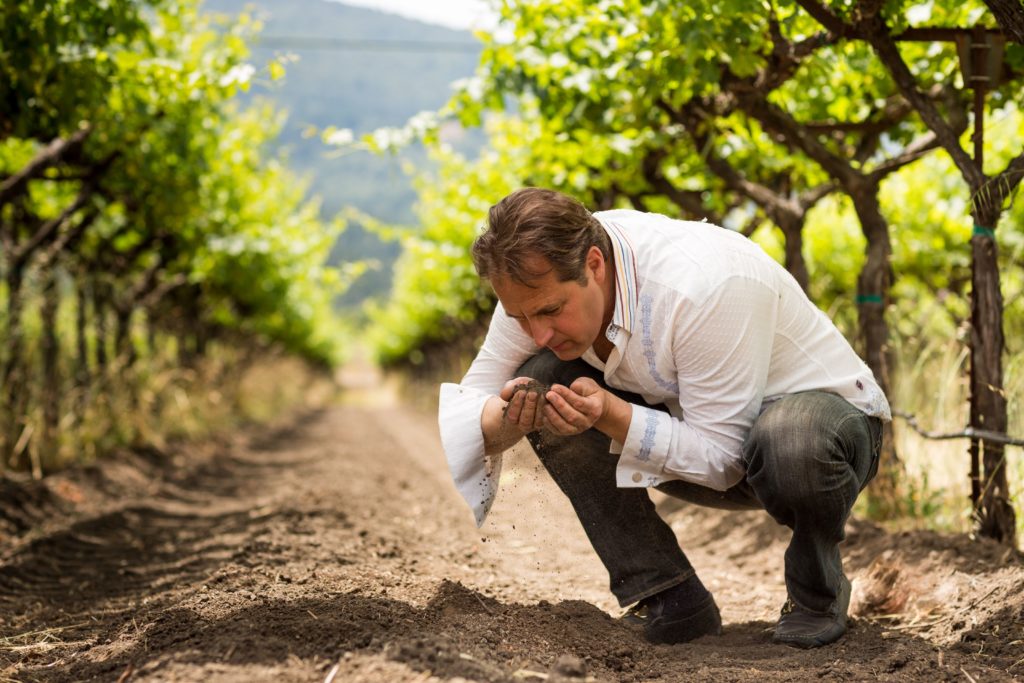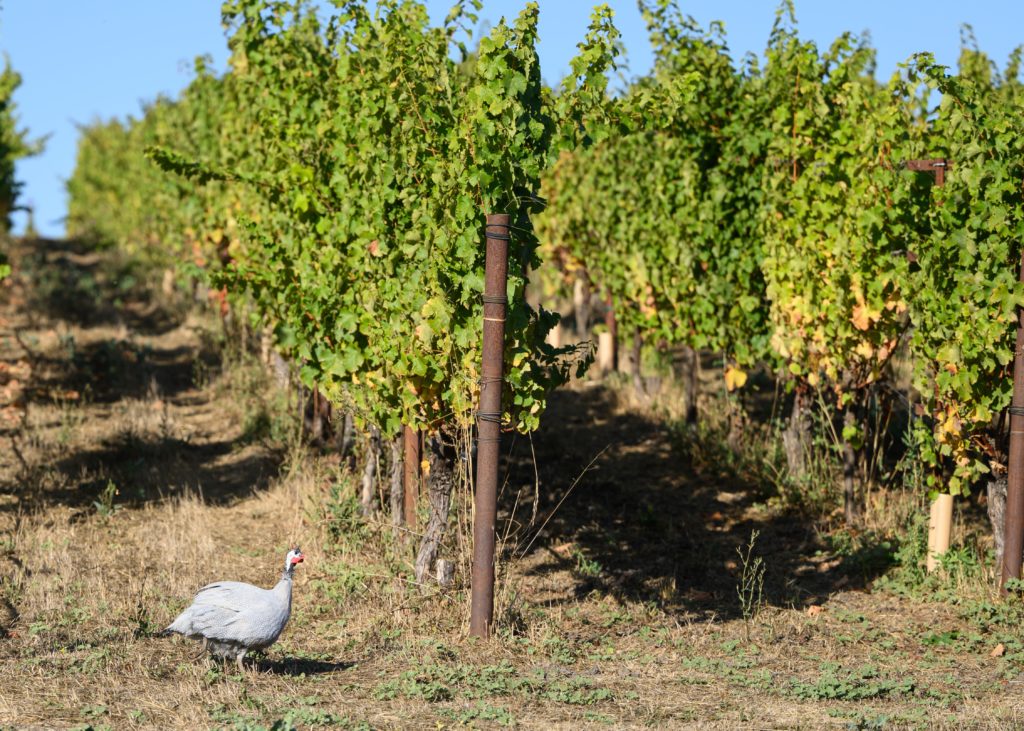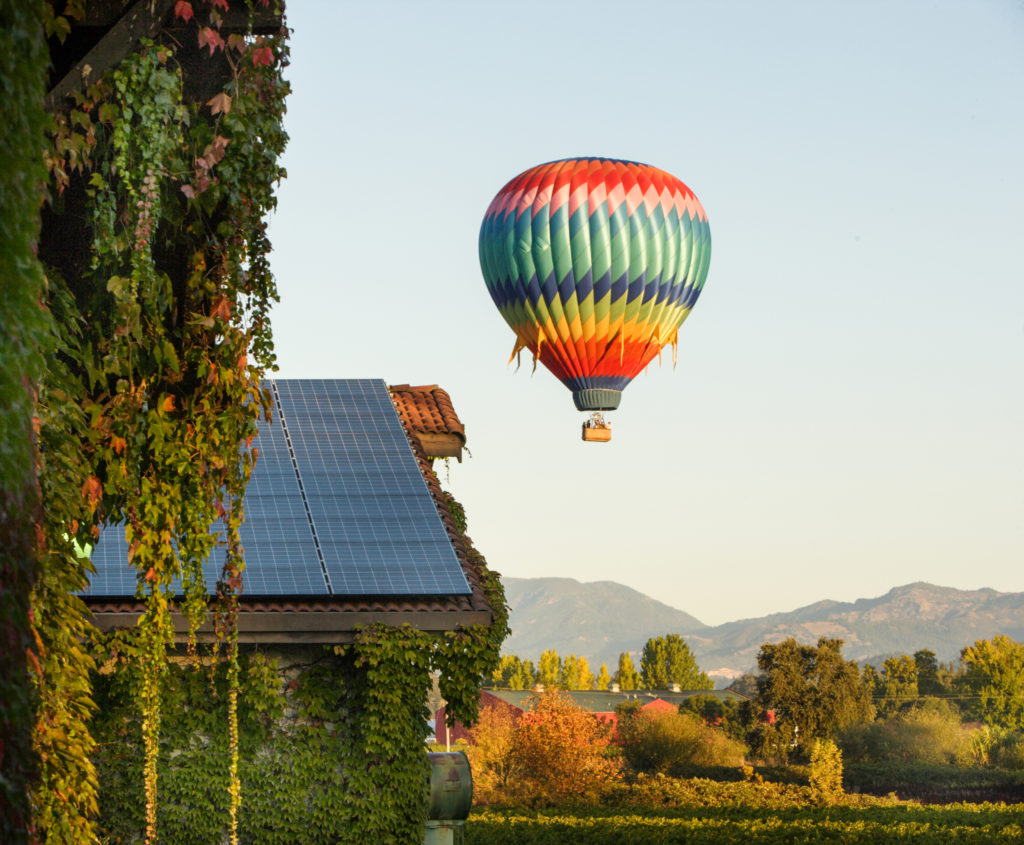For many, consuming organically grown products is a “nice to have” – important, yes, as many partake in the practice for the quality and personal health benefits, as well as the vague notion that it’s better for the environment. At Grgich Hills, we witness the environmental benefits firsthand and have a deep understanding of the impact our regenerative work has in fighting the climate crisis.
Our decision to transition first to organic and biodynamic farming and then to attain Regenerative Organic Certification stems not only from a desire to create wines of distinction but also from a sense of responsibility to our consumers, friends, and neighbors in Napa Valley, and to future generations, to be stewards of the land in a way that not only respects the earth but also works to revitalize and heal it.

Photo Courtesy of Grgich Hills Estate
Here’s what we’re doing, why it’s working, and why it matters.
We’re keeping groundwater as clean as possible:
Synthetic chemical pesticides, herbicides, and fertilizers, while seemingly practical, can leach into groundwater, affecting drinkability for humans and wildlife alike. These can also lead to harmful algae blooms, which cripple the growth of native plants and the food we’re farming. Clean, healthy water means soil that thrives, leading to more nutrient-dense produce and a healthier environment for the entire ecosystem, humans included.

Photo Courtesy of Grgich Hills Estate
We’re reducing carbon emissions:
Healthy soil doesn’t just benefit our vines and land; our regeneratively farmed soil sequesters significantly more carbon than tilled soils. Agricultural soils have the potential to draw away 250 million metric tons of greenhouse gases yearly – that’s equivalent to the emissions of 64 coal-fired power plants. Metaphorically, we’re sitting on a clean air gold mine! At Grgich Hills, our regenerative farming sequesters about 6.5 tons per acre every year, and to date, we’ve stored more than 50,000 tons of carbon in our soil.
We focus on thriving communities:
Did you know that one of the requirements for becoming Regenerative Organic Certified is providing a livable standard of pay to our vineyard and winery workers? It’s our responsibility to provide economic stability and a healthy work environment for those who are essential to our operation. In the wake of the climate crisis, creating a framework in which regenerative farming is a sustainable and feasible way of life encourages more people to embrace the endeavor. It makes regenerative education and training more approachable and readily available to those who can enact change.

Photo Courtesy of Grgich Hills Estate
We’re working to educate our farming communities on how to embrace more natural agricultural practices:
Whether it’s the knowledge-sharing we engage in with fellow winemakers, our collaborations with the University of California at Davis (UC Davis), or shedding light on the financial aspect of regenerative farming, we’re always working to enlighten others and empower them to learn and adopt regenerative practices. Our goal is to make the entirety of Napa Valley greener, ensuring that our winemaking haven thrives for years to come.
The introduction of human intervention methods in farming, such as tilling, pesticides, and man-made fertilizers, has collectively caused us to lose sight of one of nature’s miracles – its ability to self-balance. Our founder, Mike Grgich, was raised learning natural farming methods. So, a significant part of our drive to farm regeneratively, while future-forward, also honors our roots and the beliefs upon which his love of farming was built. As we forge ahead, our dedication to letting the land lead – and to be students as much as we are stewards – is unwavering.
Learn more about San Francisco | Napa Valley Great Wine Capital